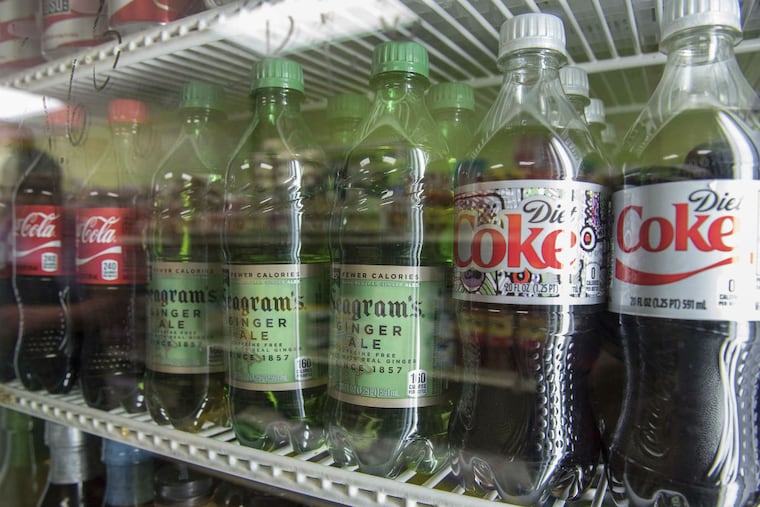Commentary: Philly drink tax means a healthier, better educated city
Today, a 4-year old girl walked into a classroom. That may sound unremarkable. But until quite recently, that opportunity didn't exist in Philadelphia because there was no room for her in the city's pre-K program. So to that girl and her family, just the fact that she went to school today - along with 2,000 of our most vulnerable children, who also had nowhere to go until recently - is an absolute game-changer.

Today, a 4-year old girl walked into a classroom.
That may sound unremarkable. But until quite recently, that opportunity didn't exist in Philadelphia because there was no room for her in the city's pre-K program. So to that girl and her family, just the fact that she went to school today - along with 2,000 of our most vulnerable children, who also had nowhere to go until recently - is an absolute game-changer.
How did it happen? On Jan. 1, Philadelphia's sugary drink tax - passed overwhelmingly by City Council last summer - took effect. And families across the city are seeing immediate benefits each day as they drop their young children at pre-K.
Last month, in conjunction with the tax taking effect, 2,000 additional seats in pre-K programs opened in some of our highest risk neighborhoods. An additional thousand seats will open by September. Eventually, more than 6,500 seats will be filled.
The evidence is overwhelming: Americans with more and better education, starting at a young age, live longer and healthier lives. As a result, this tax will help our city's children reach their full potential.
The benefits go beyond pre-K expansion. The estimated $91 million in annual revenue will also fund improvements to city parks and recreational facilities, new and modernized libraries, and school construction and expansion. All of those things will contribute to the well-being of our city and its residents.
Also important are the health benefits. Sugary drinks are the single leading source of added sugars in the American diet. The Centers for Disease Control and Prevention just released new research showing that two-thirds of children and one-half of adults consume at least one sugary drink every day. These alarmingly high consumption rates contribute to an increased risk of chronic diseases such as diabetes, heart disease, stroke, tooth decay, and even certain cancers.
As a cardiologist dealing with the medical consequences of excess sugary drink consumption, I see firsthand the tremendous financial and human costs of statistics and diseases that may seem abstract and hypothetical to most non-physicians. As a witness to these disabling and devastating conditions - with their lifelong dependence on medications, associated hospitalizations, surgeries, and complications - I strongly support this tax because it will improve health and save lives.
Lowering rates of chronic diseases is especially important in Philadelphia, which has the highest childhood poverty rate and highest proportion of residents with diabetes of any big city in America. Researchers project that, over a 10-year period, the tax will reduce consumption of sugary drinks enough to prevent nearly 20,000 cases of diabetes and reduce the incidence of heart disease, obesity, and strokes. As a result, they forecast more than $76 million in health-care cost savings over that span.
Over the past several years, Philadelphia has taken a series of steps to address the scourge of sugary drinks and make healthy eating and active living in our city easier, from eliminating sugary drinks in our schools to incentivizing fruits and vegetable purchases at farmers' markets to implementing a master trail plan and bike share program.
Remarkably, Philadelphia's childhood obesity rates declined by 6.5 percent between 2006-07 and 2012-13, and ours is the only city in America among those reporting such declines to demonstrate more progress among some children of color, whose rates are typically higher than average.
The sugary drink tax is designed to build on that momentum. Most of what affects the health of my patients and their families actually occurs beyond the walls of my office, from their food and beverage choices to the quality of their education to the safety and accessibility of places to be active. The tax will positively impact all of those factors and many more.
But in the end, perhaps it all boils down to one simple thing:
Thanks to our sugary drink tax, a 4-year old girl went to pre-K today. When it comes to her life - and the lifeblood of our city - that can make all the difference.
Kenneth Margulies, M.D., is professor of medicine at the Hospital of the University of Pennsylvania. Kenneth.Margulies@uphs.upenn.edu